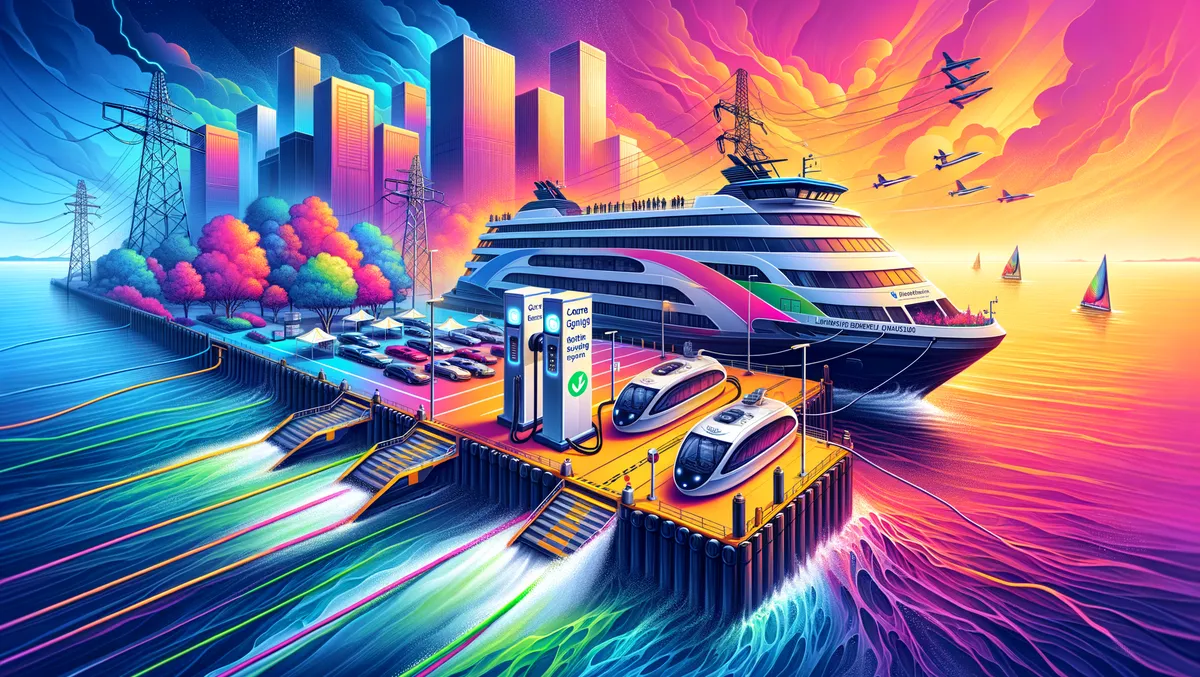
Singer Electric & ABB launch maritime industry's first MCS for Auckland Transport
In a new partnership, Singer Electric and ABB have joined forces to implement the maritime industry's inaugural Megawatt Charging System (MCS) to support Auckland Transport's all-electric and hybrid-electric ferries.
Through the provision of an interface akin to those used in trucking and aviation, the shore-to-ship charging scheme expects to lower market entry barriers for electric ships and foster the competitiveness of vessels powered by electricity.
Taking a world lead, Auckland Transport will become the first provider of urban transport to use identical chargers for its buses and ferries, the company states. Singer Electric has committed to installing 10 complete E-Haus charging points for Auckland ferries by the end of 2025.
Despite Auckland's ferries accommodating only 6% of public transport users, they consume nearly 13 million litres of diesel annually and contribute to 20% of public transport emissions. Auckland Transport's plan to power ferry electrification with locally generated electricity aims to cut fuel consumption by around 1.5 million litres each year, thus avoiding about 4,000 metric tons of CO2 emissions.
As part of its Mission Electric scheme, Auckland Transport has already placed orders for two 200-seat all-electric ferries and two hybrid-electric ferries that can carry 300 passengers. The anticipated result of these efforts is for Auckland Transport to become the largest operator of electric ferry fleets in the Southern Hemisphere by 2030.
Each 2 x 1.65MW charger supplied by ABB and to be installed by Singer Electric will comprise a transformer, ACS880 converters, MCS plugs and cable management on the ferry pontoons. These chargers will supply over 3MW of direct current (DC) power to facilitate the short turnarounds and high-power demands needed during a ferry call. The charging period will span five to 10 minutes during passenger boardings, thereby reducing the size of marine batteries and supporting high vessel utilisation sans long charging times.
As noted by Nathan Cammock, Program Director of Auckland Transport, the new ferries will bring enhanced passenger capacity, improved accessibility and a more consistent customer experience. He said, "We're proud that the charging infrastructure to power our new ferries will be provided by ABB and Singer Electric."
In the words of Palemia Field, Global Segment Manager, Ferries, ABB Marine & Ports, "Electrification is crucial, and we must move away from emission-generating technologies." Field also anticipates more operators will opt for a standardised interface as the global ferry fleet's electrification increases.
Jeff McLaren, Managing Director of Singer Electric, described the initiative as a major stride in Singer Electric's ambition to decarbonise buildings and transport in New Zealand and said the scheme is' at the vanguard of charging technology'.
The project is poised to have an influential impact on the maritime battery capacity market, bringing to bear research published by IDTechEx, which found that electric ferry orders constituted 37% of deliveries in this sector from 2019 to 2022. Furthermore, a Spherical Insights prediction from 2023 implies the electric ships market, in terms of all types, will double in value by 2030 from a 2021 baseline, reaching a worth of over US$10.5 billion.


